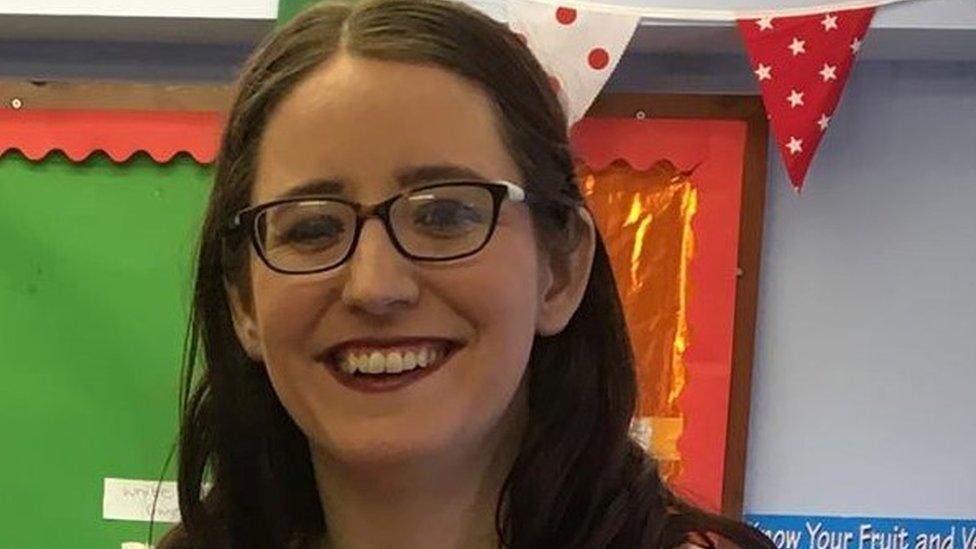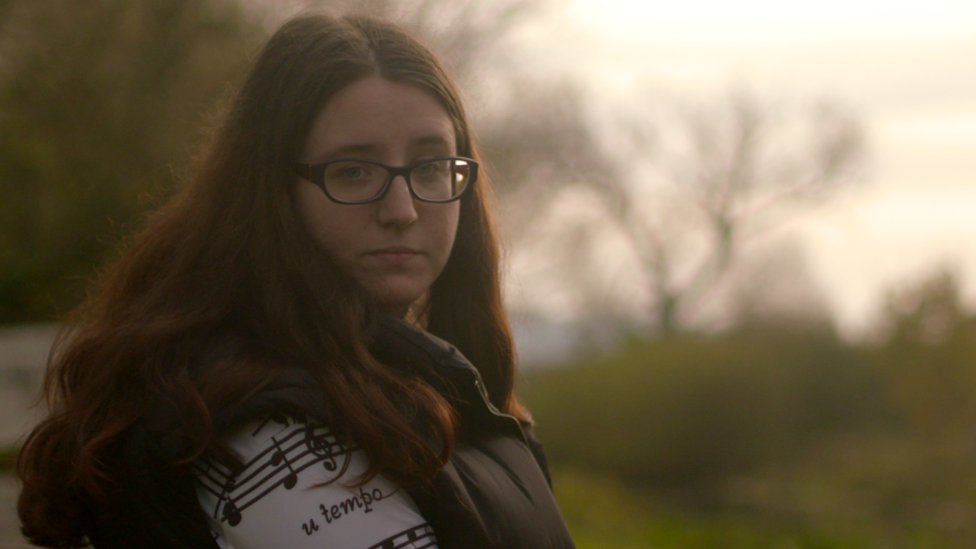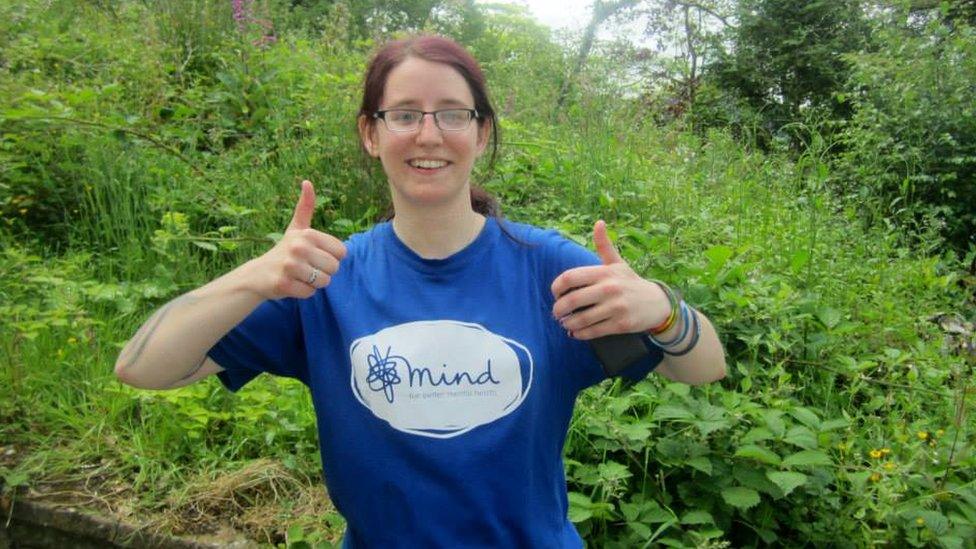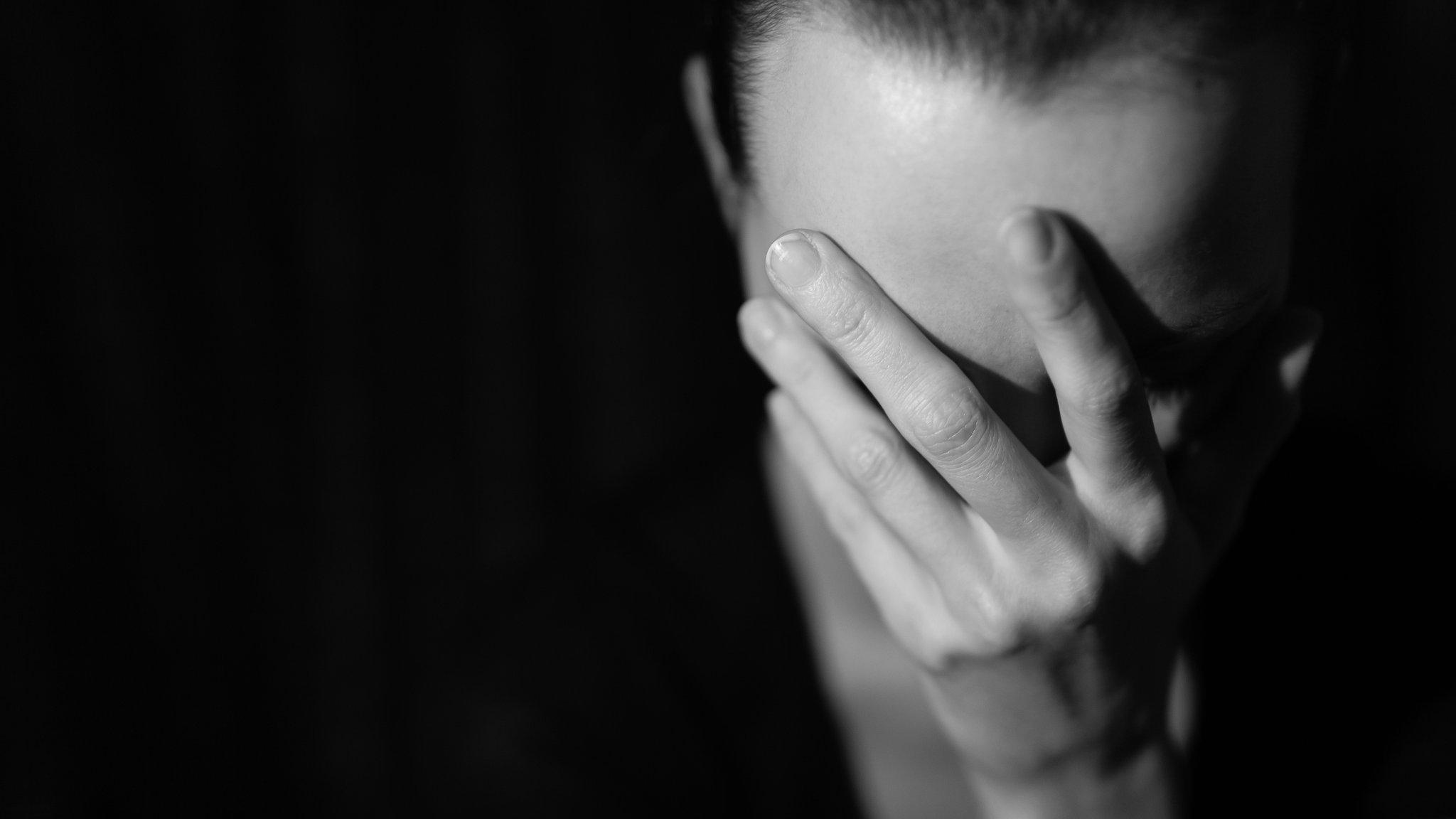Police 'saved' Welshpool woman in mental health crises
- Published

Georgia was living alone and said there was no-one for her to turn to in the early hours but the police
Police across the UK have seen up to a 40% rise in call-outs to help people in mental health crises in the last five years, according to Chief Constable Mark Collins and the National Police Chief's Council's lead on mental health.
Georgia Lawson, 25, from Welshpool, Powys, was among those who relied on the police when feeling suicidal. She now wants special centres to help people in a similar situation.
"Don't worry, if it comes to it we won't leave you until you are asleep so we know you're safe," the police officer said to me.
It might sound strange but it was a lifeline at the time.
I had been suicidal and was self-harming on a regular basis.
And, with no family close by, the police had become my support in the early hours of the morning - when I was at my lowest.
They tried to take me to hospital but I was turned away and the crisis team in the area - qualified to deal with mental health crises like this - were only on call between 09:00 and 21:00.
So the two officers who were now in my house were all I had and they knew it. They saved my life.

Georgia, originally from Birmingham, struggled with self-harm
Every day was a struggle. It wasn't like I was living, I was purely existing.
I woke up and it was like "what am I going to fill today with to get until bedtime". That's how bad it was. I really just was in so much emotional pain.
The only exit I saw was, you know, I just need to not be around anymore. The headspace was just such a dark place and I couldn't see a way out of it.
I made several attempts on my life because I just was that desperate.
My family weren't down the road so it was mainly my friends who were there for me.

Find out more
For more on Georgia's story watch Wales Live on iPlayer
If you are experiencing emotional stress, help and support is available, more information is at BBC Action Line

The worst time for me was at night - from 22:00 to 04:00. I got to my lowest and at that time there's no-one else really awake.
There aren't many services to call at that time. The only number to call, and this was written on my official crisis plan, was 999.
Obviously you have got things like the Samaritans, but if you're at the point where you're actually about to do something life-threatening then they're not ideal because they can't physically step in and take control of the situation.
I mean, I was always worried about calling the police because I didn't feel like it was their job and they shouldn't have to be responsible for me.
But there was nowhere else to turn - if the doctors at the hospital turned me away then I was on my own without the police.

I felt like I was a burden on the service because someone else might need them more because I didn't view myself or my problems as important as anybody else's.
And I had to call them so many times. At my worst I was calling them three to four times a week and sometimes I'd see them two days back to back because whatever crisis happened on the one day hadn't been resolved properly so I was in the same situation the next night.
There was another time when two officers stayed with me until around four hours past the end of their shift purely because they didn't want to leave me on my own as they were worried what I would do.
They've gone above and beyond to help me out. The police have actually trampled through mud, climbed over fences, gone under bridges just trying to get to me to keep me safe.
I can honestly say that if it wasn't for the police I probably would have wound up in hospital in a life-threatening situation several times.

Georgia now campaigns for Mind and tries to help other people dealing with mental health issues
Feeling unsafe is a burden in itself that people don't seem to understand because knowing that you can't trust yourself is such an ongoing stress, it's hard to even describe.
You're constantly plagued with thoughts of self-injury or to kill yourself or things like that and even the simplest things become a task in themselves.
I still feel like the police shouldn't have had to help me at that time but I am endlessly grateful for the support they have given.
I think the best and most safe place to go would have been an environment which was tailored for these situations like a crisis centre or a crisis drop-in or something, where there were people trained to help.
Luckily I pulled through it and haven't attempted anything or self-harmed for two years.
So I feel like I've turned the corner and I'm doing really well in my recovery.
I was missing certain support things in place and now I've got those things it's enabled me to realise I am worth something, and yes I can do this and I'm better than I've ever been as far as my mental health goes.
Now I volunteer with a local mental health drop-in centre once a week to help other people.
But I'm just so grateful for everything the police did for me because I may not still be here otherwise.
- Published15 November 2017
